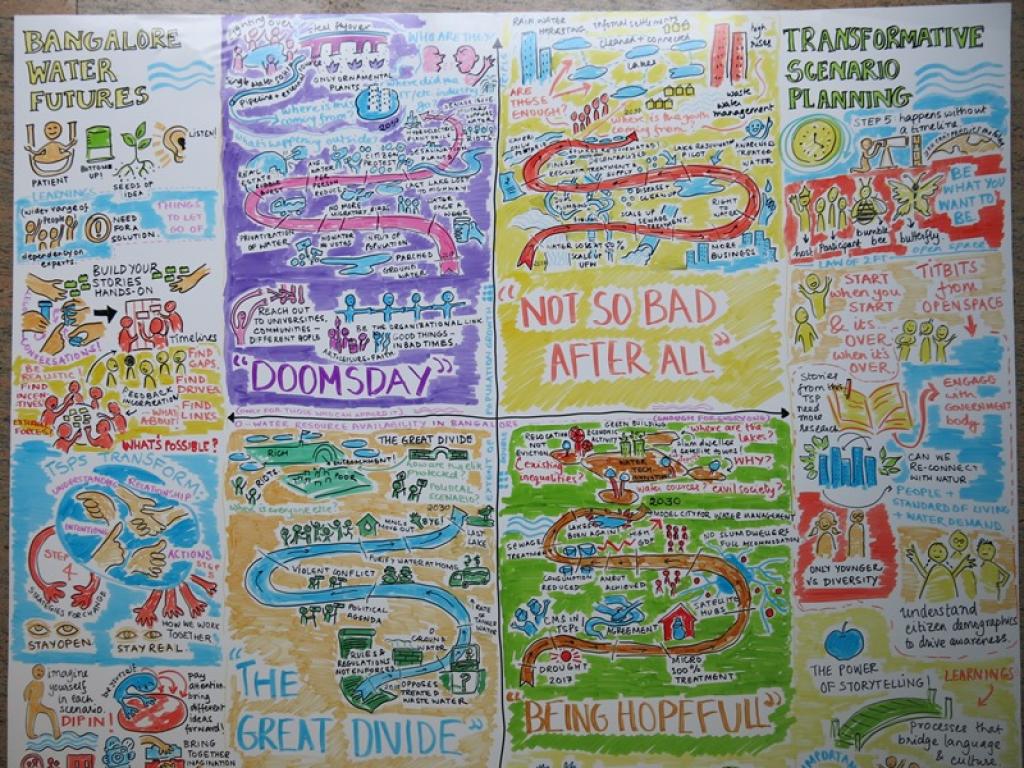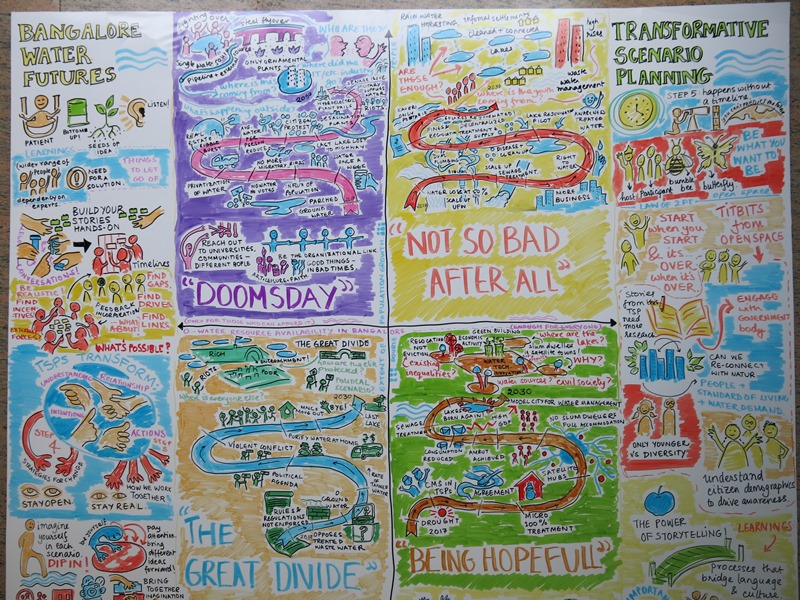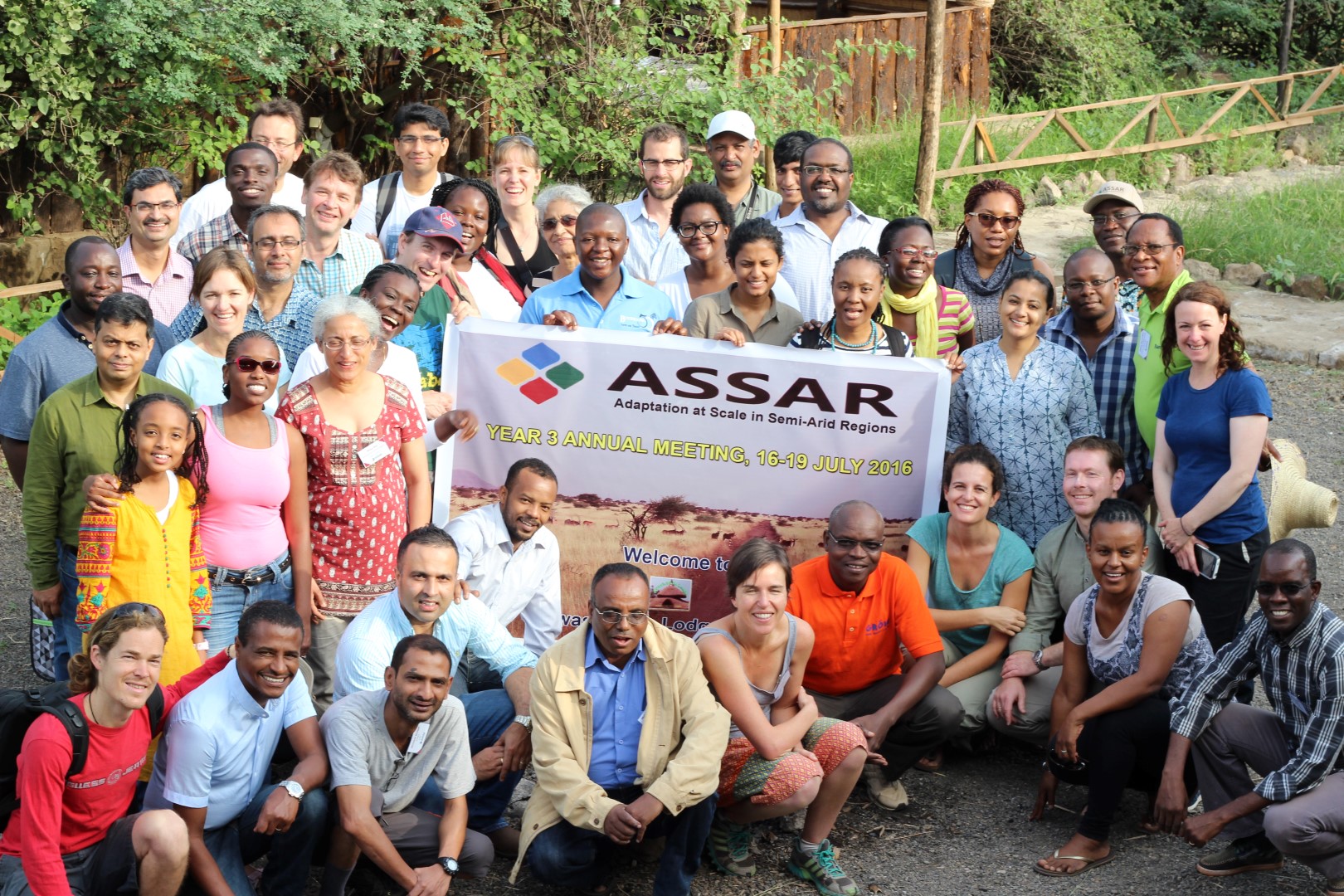What have I learned in ASSAR? What have I not learned...

Lucia Scodanibbio looks back over two-and-a-half years of lessons learnt and notes three important dimensions.
By Lucia Scodanibbio, ASSAR Project Coordinator, University of Cape Town

Photo credit: Lucia Scodanibbio
If ASSAR was a three-dimensional model, I could look in any direction, maybe even upside down, and not only find lessons learned, but realise that it’s not over. We keep making new mistakes, new adjustments and changes, to only realise the need for further modifications, some stepping back when things don’t work, sideways to try it another way and further zigzagging as we go along. I also discover new topics, understand known issues better and sometimes, find renewed motivation and passion about something I perhaps knew existed, but had not engaged with before.
If one of the dimensions was content: I have learned. I never heard the term social differentiation before and had not realised that the distinction of gender which is so often where development agencies end, is just the beginning: age, socio-economic status, caste… so many more layers to add on. I did not know that temperature changes are much easier to predict compared to precipitation variations, or that GCM stands for General Circulation Model, and what that actually was. A world of scenario planning has opened to my eyes, recently augmented by knowledge about adaptation pathways, both so closely linked to bringing transformation about – something I have always been interested in, but that missed the tools or insights for tackling. I didn’t know that in academia, resilience, disaster risk reduction, transformation and adaptation are not just terms, but come with huge suitcases of definitions, frameworks and methodologies, and I can’t say that I understand this yet. I only know that it is complex, and probably a lot more than I will ever attempt to grapple with.
If the second dimension was managing our ASSAR consortium: I have learned. Perhaps the biggest, most recent lesson has been to stop trying so hard. I have realised that in such a complex consortium, where there are multi-layered expectations, objectives, interests and constraints, coupled with limited time on the part of most of those involved, I have to play a continuous game of pushing and releasing. I have to be savvy at identifying the priorities that need the input and action of the multiple, geographically dispersed teams, attempt to spread those out lest they become overwhelming and try to find the best ways to get those requests answered. It may be through pitifully begging emails, a weekly digest packed with urgent deadlines or a stronger word coming from “above”.
But for those items which are “nice to haves”, I have realised that for now, halfway through the project, space must be left for the researchers to do their research. I have come to understand that this big machine that is the consortium requires strong action and leadership particularly at the beginning so that a vision, direction and the mechanisms to make it work together, in an oiled and smooth fashion, are established. Once the motor is activated, after spurts, hiccups and early crashes, the best thing for a coordinator to do, is to add some oil and water here and there, but for the rest, let the machine move in the direction it set out.

Photo credit: Nicholas Reay
If the third dimension was managing my personal expectations: I have learned. A chain of lessons. I have realised that, unlike previous projects where I held a lot of power through strings of contracts and potentially withheld payments, through having several full-time workers reporting to me and through full control on the project budget and hence on its activities , I could “successfully” be in charge. In ASSAR, this is impossible. With five independent, self-budgeted, strong-willed institutions that hold sub-contracts with a set of additional organisations, my ability to determine the direction of the project is minimal. I have also learned to be patient. I used to get frustrated at the slow pace of the academics who need vast amounts of time to agree on definitions, questions, frameworks and methods, when I am so action-oriented. I used to think that I was wasting my time in an academic project, that I was not learning much (!) and that this job was not aligned to my future career dreams. And yet, I have learned through being patient that lessons continuously pour in, being rigorous is not so bad after all, I am discovering new fascinating areas of work that I was not even aware of and am building a very interesting network of contacts!
So is the hardship and frustration of organising visas for over 50 people to meet in Ethiopia, India or Botswana for our annual get-together worth it? While a year ago I would have said no, I think my head can now nod.
Read Lucia’s previous blog “Breaking the Silence on ASSAR”